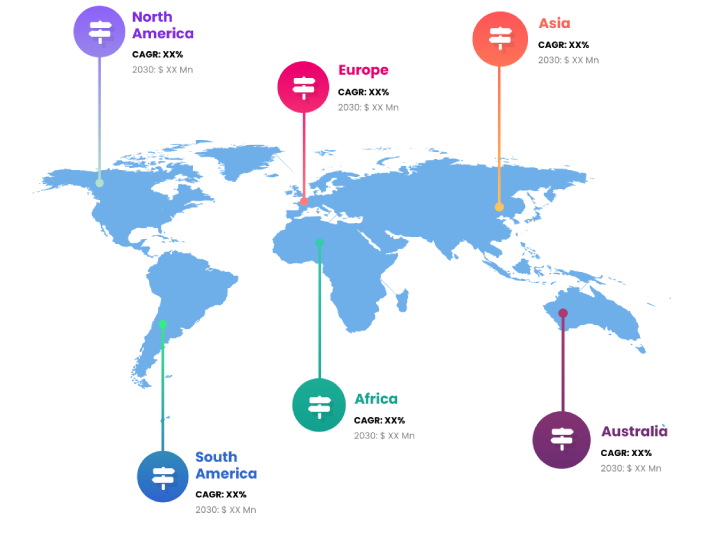
Drivers
The need for bio-based isobutanol continues to rise.
The rising need for bio-based isobutanol is one factor propelling the worldwide isobutanol market. Bio-based alternatives are increasingly preferred over traditional synthetic chemicals as sustainability becomes a central emphasis in a wide range of businesses. Isobutanol produced from renewable feedstocks is a greener alternative since it cuts down on emissions and eliminates the need for fossil fuels. The increasing demand for bio-based isobutanol can be attributed to the increasing awareness of environmental concerns as well as the development of supportive policies and incentives by governments and regulatory organisations.
Restraints
Raw material price fluctuations
Raw material price volatility is a major factor holding back the worldwide isobutanol market. The price of crude oil, natural gas, and biomass, all of which are used as feedstocks in the manufacturing of isobutanol, can be affected by geopolitical considerations, supply and demand dynamics, and other worldwide events. The price of isobutanol and its overall competitiveness in the market are vulnerable to fluctuations in the cost of raw materials. Unpredictable raw material price variations pose a significant threat to market operators' ability to maintain consistent profit margins and make long-term investment decisions.
Isobutanol's many uses in many sectors fuel the growth of the global market for the substance. Isobutanol's versatility as a chemical intermediary and solvent has kept its demand high. Isobutyl acetate, isobutyl methacrylate, and other compounds that use it as a key ingredient continue to boost its market standing. Isobutanol's expanding popularity in the automobile industry can also be attributed to its widespread use as a blending component in petrol. The pharmaceutical industry's growing reliance on isobutanol in the production of a wide range of pharmaceuticals and medications is also contributing to the growth of this market. Another significant market for isobutanol is the paint and coatings business, which uses it as a solvent in many of their products. Isobutanol is becoming more affordable and more widely available as a result of technological developments in the industry. The increasing modernization and growth of the automotive and construction industries in nations like China and India make Asia-Pacific a promising market. Sustainable and bio-based isobutanol manufacturing technologies are gaining traction as environmental concerns gain prominence, fueling the market's expansion. As a whole, the worldwide market has a bright future ahead of it thanks to the numerous uses it has and the constant innovations in technology.
Key Market Developments
The important trend in the global market is the rising interest in using renewable resources and bio-based materials to produce isobutanol. As environmental issues receive more media attention, businesses are searching for environmentally responsible methods of chemical manufacture. Isobutanol made from renewable resources is a greener alternative to the conventional petroleum-based variety. The market is being driven towards more sustainable practises and products as a result of this trend, which is in line with the broader global push towards sustainability.
Report Coverage
Global Isobutanol research report categorizes the market for global based on various segments and regions, forecasts revenue growth, and analyzes trends in each submarket. Global Isobutanol report analyses the key growth drivers, opportunities, and challenges influencing the global market. Recent market developments and Isobutanol competitive strategies such as expansion, product launch and development, partnership, merger, and acquisition have been included to draw the competitive landscape in the market. The report strategically identifies and profiles the key Isobutanol market players and analyses their core competencies in each global market sub-segments.
| REPORT ATTRIBUTES | DETAILS |
|---|---|
| Study Period | 2017-2030 |
| Base Year | 2022 |
| Forecast Period | 2022-2030 |
| Historical Period | 2017-2021 |
| Unit | Value (USD Billion) |
| Key Companies Profiled | BASF SE (Germany), Eastman Chemical Company (US), Gevo (US), Ineos Group Holdings S.A. (UK), Mitsubishi Chemical Holdings Corporation (Japan), Oq Chemicals Gmbh (Germany), Petronas Chemicals Group Berhad (Malaysia), Sasol Limited (South Africa), The Andhra Petrochemicals Limited (India), The Dow Chemical Company (US), ExxonMobil (US), LyondellBasell Industries N.V. (Netherlands), Formosa Plastics Corporation (Taiwan), Braskem S.A. (Brazil), Sinopec (China), Sibur Holding PJSC (Russia), China National Petroleum Corporation (China), Repsol S.A. (Spain), YNCC (South Korea), TotalEnergies (France). |
| Segments Covered | • By Product |
| Customization Scope | Free report customization (equivalent to up to 3 analyst working days) with purchase. Addition or alteration to country, regional & segment scope |
Key Points Covered in the Report
- Market Revenue of Isobutanol Market from 2021 to 2030.
- Market Forecast for Isobutanol Market from 2021 to 2030.
- Regional Market Share and Revenue from 2021 to 2030.
- Country Market share within region from 2021 to 2030.
- Key Type and Application Revenue and forecast.
- Company Market Share Analysis, Isobutanol competitive scenario, ranking, and detailed company
profiles. - Market driver, restraints, and detailed COVID-19 impact on Isobutanol
Market
Competitive Environment:
The research provides an accurate study of the major organisations and companies operating in the global Isobutanol market, along with a comparative evaluation based on their product portfolios, corporate summaries, geographic reach, business plans, Isobutanol market shares in specific segments, and SWOT analyses. A detailed analysis of the firms' recent news and developments, such as product development, inventions, joint ventures, partnerships, mergers and acquisitions, strategic alliances, and other activities, is also included in the study. This makes it possible to assess the level of market competition as a whole.
List of Major Market Participants
BASF SE (Germany), Eastman Chemical Company (US), Gevo (US), Ineos Group Holdings S.A. (UK), Mitsubishi Chemical Holdings Corporation (Japan), Oq Chemicals Gmbh (Germany), Petronas Chemicals Group Berhad (Malaysia), Sasol Limited (South Africa), The Andhra Petrochemicals Limited (India), The Dow Chemical Company (US), ExxonMobil (US), LyondellBasell Industries N.V. (Netherlands), Formosa Plastics Corporation (Taiwan), Braskem S.A. (Brazil), Sinopec (China), Sibur Holding PJSC (Russia), China National Petroleum Corporation (China), Repsol S.A. (Spain), YNCC (South Korea), TotalEnergies (France).
Primary Target Market
- Market Players of Isobutanol
- Investors
- End-users
- Government Authorities
- Consulting And Research Firm
- Venture capitalists
- Third-party knowledge providers
- Value-Added Resellers (VARs)
Market Segment:
This study forecasts global, regional, and country revenue from 2019 to 2030. INFINITIVE DATA EXPERT has segmented the global Isobutanol market based on the below-mentioned segments:
Global Isobutanol Market, By Type
Synthetic
bio-based
Global Isobutanol market, By Application
Pharmaceuticals
Chemicals and Textiles
Paint and Coating
Oil and Gas
Others
Global Isobutanol market, Regional Analysis
- Europe: Germany, Uk, France, Italy, Spain, Russia, Rest of Europe
- The Asia Pacific: China,Japan,India,South Korea,Australia,Rest of Asia Pacific
- South America: Brazil, Argentina, Rest of South America
- Middle East & Africa: UAE, Saudi Arabia, Qatar, South Africa, Rest of Middle East & Africa
You will get in-depth and extensive isobutanol market market research and competitor analysis for your business to help you develop more profound insights into the isobutanol market Market.
Through INFINITIVE Data Expert is a professional Market Research services, I will identify the isobutanol market market size, demand & opportunities, growth rate, and target audience with a comprehensive analysis of your competitors.



